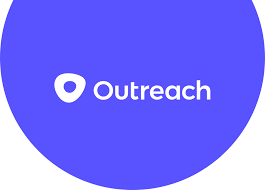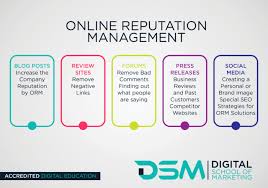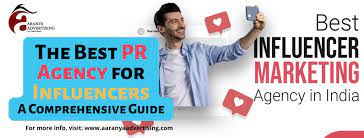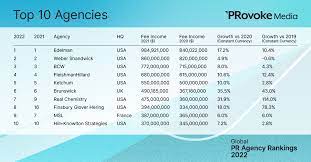The Role and Value of Consultants in Today’s Business Landscape
In the fast-paced and ever-changing world of business, organizations often turn to consultants for their expertise and guidance. Consultants play a crucial role in helping businesses navigate complex challenges, improve operations, and achieve their goals. In this article, we will explore the role and value that consultants bring to the table.
First and foremost, consultants are experts in their respective fields. They possess a deep understanding of industry best practices, trends, and strategies. This knowledge allows them to provide valuable insights and recommendations that can help businesses make informed decisions. Whether it’s developing a new marketing strategy or implementing a change management initiative, consultants bring a wealth of knowledge and experience to the table.
One of the key benefits of working with consultants is their fresh perspective. As external advisors, they can offer an objective viewpoint that may be difficult to achieve from within an organization. Consultants have the ability to identify blind spots, uncover hidden opportunities, and challenge existing assumptions. Their unbiased approach can lead to innovative solutions and breakthroughs that drive business growth.
Furthermore, consultants bring a diverse range of skills and expertise to the table. They have worked with various clients across different industries, allowing them to accumulate a broad knowledge base. This versatility enables consultants to adapt quickly to different organizational cultures and contexts. They are adept at understanding unique business challenges and tailoring their approach accordingly.
Collaboration is another key aspect of working with consultants. They work closely with clients as partners rather than simply providing instructions or recommendations from afar. By collaborating with internal teams, consultants foster a sense of ownership among employees while leveraging their expertise for maximum impact. This collaborative approach ensures that solutions are not only effective but also sustainable in the long run.
Consultants also offer scalability for businesses. Whether it’s a small project or a large-scale transformation initiative, organizations can engage consultants on-demand without having to invest in permanent resources. This flexibility allows businesses to access specialized skills and knowledge when needed, without the burden of long-term commitments. Consultants can be a cost-effective solution for organizations looking to optimize their operations or embark on strategic initiatives.
Lastly, consultants bring a results-oriented mindset to the table. They are focused on delivering tangible outcomes and measurable impact. Through rigorous analysis, data-driven insights, and performance tracking, consultants ensure that their recommendations translate into real-world results. This commitment to delivering value helps organizations achieve their objectives efficiently and effectively.
In conclusion, consultants play a vital role in today’s business landscape. Their expertise, fresh perspective, collaborative approach, scalability, and results-oriented mindset make them valuable partners for organizations seeking to overcome challenges and drive growth. By leveraging the knowledge and experience of consultants, businesses can gain a competitive edge in an increasingly complex and dynamic marketplace.
8 Advantages of Hiring Consultants for Your Organisation
- Consultants can provide independent and impartial advice.
- Consultants can bring specialist knowledge and experience to a project or organisation.
- They can help organisations develop strategies, plans and solutions that are tailored to their own needs.
- Consultants are often able to identify problems quickly and suggest ways of resolving them efficiently.
- They can help organisations save time by doing the work for them rather than having to recruit staff with the necessary expertise internally.
- Consultants are often more cost-effective than hiring permanent staff as they don’t require long-term contracts or benefits packages such as pensions or healthcare coverage etc..
- Consulting firms often have access to technology, tools and other resources that may not be available within an organisation itself, allowing them to provide better solutions faster than internal teams could achieve on their own..
- Good consultants will leave an organisation in a better position than before they arrived by transferring skills and knowledge along with any new processes or systems implemented during the project
5 Drawbacks of Consultants: Exploring the High Cost, Lack of Commitment, Limited Expertise, Conflict of Interests, and Dependence on External Resources
- High Cost – Consultants often charge high fees for their services, which can be a financial burden on businesses.
- Lack of Commitment – Consultants typically do not have any long-term commitment to the organization they are advising, so they may not always provide the best advice or solutions for the company’s needs.
- Limited Expertise – Consultants may not have extensive knowledge in all areas related to the project and could provide limited guidance and support.
- Conflict of Interests – In some cases, consultants may have conflicts of interest that could affect their advice or recommendations to a business.
- Dependence on External Resources – Businesses that rely heavily on consultants may become overly dependent on external resources and lose sight of their own internal capabilities or resources
Consultants can provide independent and impartial advice.
One of the key advantages of working with consultants is their ability to provide independent and impartial advice. In a business landscape where internal biases and vested interests can sometimes cloud decision-making, consultants offer an objective perspective that can be invaluable.
Consultants are external advisors who bring a fresh set of eyes and an unbiased approach to the table. They have no personal stake in the outcome of the decisions being made, allowing them to provide impartial recommendations based solely on their expertise and analysis.
By being independent, consultants can assess situations objectively and without any preconceived notions. They are not influenced by internal politics or organizational dynamics that may hinder internal teams from seeing the bigger picture. This objectivity enables consultants to identify strengths, weaknesses, opportunities, and threats that may have been overlooked by those closely involved in day-to-day operations.
Moreover, consultants are not bound by internal hierarchies or corporate culture. They can challenge existing assumptions and ask critical questions without fear of reprisal or compromising their position within the organization. This freedom allows them to dig deeper, explore alternative perspectives, and propose innovative solutions that may not have been considered before.
The impartiality of consultants also extends to their ability to provide honest feedback. They can deliver constructive criticism without any personal agenda or fear of repercussions. This transparency fosters a culture of open dialogue where weaknesses can be addressed head-on, leading to continuous improvement within the organization.
Another aspect worth mentioning is that consultants bring a wealth of industry knowledge and best practices from working with various clients across different sectors. This broad exposure allows them to offer insights into what has worked well elsewhere and what pitfalls should be avoided. Their diverse experience enriches their advice with real-world examples and benchmarks that can guide decision-making processes effectively.
In summary, consultants’ independence and impartiality are valuable assets for businesses seeking unbiased advice. By providing an objective perspective free from internal biases, they can help organizations make informed decisions based on sound analysis and industry expertise. This ability to offer independent and impartial advice is a significant pro of working with consultants, enabling businesses to navigate challenges and seize opportunities with clarity and confidence.
Consultants can bring specialist knowledge and experience to a project or organisation.
Consultants can bring specialist knowledge and experience to a project or organization, making them a valuable asset in today’s business world. With their expertise in specific areas, consultants offer a deep understanding of industry best practices, trends, and strategies that can greatly benefit businesses.
One of the key advantages of working with consultants is their ability to provide specialized knowledge. They have dedicated their careers to mastering a particular field, which allows them to offer insights and recommendations that may not be readily available within the organization. Whether it’s implementing new technology, improving operational efficiency, or developing a marketing strategy, consultants possess the expertise needed to tackle complex challenges effectively.
Furthermore, consultants bring a wealth of experience gained from working with various clients across different industries. This diverse exposure equips them with a broad perspective and an understanding of different organizational contexts. Their experience enables them to identify patterns, anticipate potential obstacles, and offer proven solutions based on past successes.
By leveraging their specialist knowledge and experience, consultants can help organizations overcome hurdles and achieve their goals more efficiently. They can provide guidance on industry-specific regulations and compliance requirements, assist in streamlining processes, or introduce innovative approaches for growth. Their ability to bridge gaps in knowledge or skills within an organization can lead to improved performance and increased competitiveness.
In addition to their technical expertise, consultants often bring fresh insights and ideas that challenge conventional thinking. As external advisors, they are not bound by internal biases or preconceived notions about how things should be done. This objectivity allows them to question existing practices and propose innovative solutions that may have been overlooked internally.
Collaboration is also an essential aspect of working with consultants. They work closely with internal teams, actively involving employees throughout the process. This collaborative approach fosters knowledge transfer within the organization while empowering employees to take ownership of the project. Consultants act as facilitators who guide teams towards achieving desired outcomes while sharing their expertise along the way.
Overall, the specialist knowledge and experience that consultants bring to a project or organization can be a game-changer. Their deep understanding of specific industries, combined with their diverse experience, allows them to offer unique insights and solutions that drive growth and success. By leveraging their expertise, businesses can tap into a valuable resource that accelerates progress and helps them stay ahead in an increasingly competitive market.
They can help organisations develop strategies, plans and solutions that are tailored to their own needs.
Tailored Strategies: Unlocking Success Through Consultant Expertise
In today’s competitive business landscape, organizations face the challenge of developing strategies and plans that align with their unique needs and goals. This is where consultants shine, offering their expertise to help businesses create tailored solutions that drive success.
One of the key advantages of working with consultants is their ability to understand an organization’s specific requirements and design strategies accordingly. Unlike a one-size-fits-all approach, consultants take the time to delve deep into a company’s operations, culture, and objectives. This comprehensive understanding allows them to develop strategies that are precisely tailored to meet the organization’s needs.
Consultants bring a fresh perspective to the table, unburdened by internal biases or preconceived notions. They approach each project with an open mind and a keen eye for opportunities. By conducting thorough analyses and assessments, consultants identify areas for improvement and growth potential within an organization. They then collaborate closely with stakeholders to develop bespoke strategies that address these specific areas.
Tailored strategies offer numerous benefits for organizations. Firstly, they ensure that resources are allocated optimally. Consultants help identify areas where resources may be underutilized or misallocated, allowing organizations to redirect them towards initiatives that have the greatest impact on their goals. This strategic resource allocation can result in cost savings and improved efficiency.
Furthermore, tailored strategies enable organizations to capitalize on their unique strengths and competitive advantages. Consultants identify these key differentiators and design plans that leverage them effectively in the market. By focusing on what sets an organization apart from its competitors, consultants help businesses carve out a distinct position in the industry.
Another advantage of tailored strategies is enhanced agility. Consultants recognize that business environments are dynamic and constantly evolving. They develop plans that are flexible enough to adapt to changing circumstances while still staying aligned with long-term objectives. This agility enables organizations to navigate uncertainties successfully and seize emerging opportunities swiftly.
Collaboration lies at the heart of developing tailored strategies. Consultants work closely with key stakeholders, including senior management and employees, to ensure that the strategies are not only relevant but also embraced by the entire organization. This collaborative approach fosters a sense of ownership and commitment, increasing the likelihood of successful execution.
In conclusion, consultants bring a valuable skill set to organizations by helping them develop strategies, plans, and solutions that are tailored to their unique needs. By understanding the intricacies of an organization and its industry, consultants can create bespoke strategies that optimize resource allocation, capitalize on strengths, enhance agility, and foster collaboration. With their expertise and fresh perspective, consultants enable businesses to unlock their full potential and achieve sustainable success in today’s competitive marketplace.
Consultants are often able to identify problems quickly and suggest ways of resolving them efficiently.
One of the key advantages of working with consultants is their ability to swiftly identify problems and propose effective solutions. Consultants bring a fresh set of eyes and a wealth of experience to any project or situation, enabling them to pinpoint issues that may have gone unnoticed or unaddressed by internal teams.
With their expertise in various industries and business functions, consultants possess a deep understanding of best practices and proven methodologies. This knowledge allows them to quickly assess a situation, analyze data, and identify underlying problems or bottlenecks. Their objective viewpoint helps them see beyond the surface-level symptoms and get to the root causes of issues.
Once a problem has been identified, consultants excel at suggesting efficient ways to resolve it. Drawing on their extensive experience working with diverse clients, they can offer innovative ideas and tailored strategies that align with the specific needs and goals of an organization. Consultants are skilled at developing practical action plans that address the problem at hand while considering potential constraints such as time, resources, and budget.
Moreover, consultants bring objectivity to the table. Unlike internal employees who may be influenced by personal biases or organizational politics, consultants approach problem-solving with an unbiased mindset. This impartiality allows them to objectively evaluate different options and recommend the most effective course of action for resolving the identified issues.
The efficiency of consultants in problem-solving stems from their ability to leverage their expertise, industry knowledge, and analytical skills. They have likely encountered similar challenges in previous projects or within other organizations, giving them valuable insights into what works and what doesn’t. This experience enables them to propose solutions that have been tested and proven successful in similar contexts.
By engaging consultants to identify problems quickly and suggest efficient resolutions, businesses can save valuable time and resources. Consultants help organizations avoid costly trial-and-error approaches by providing targeted recommendations based on their extensive knowledge base. Their ability to streamline processes, optimize operations, and implement effective strategies can lead to significant improvements in productivity, profitability, and overall performance.
In conclusion, the ability of consultants to swiftly identify problems and propose efficient solutions is a significant advantage for businesses. Their expertise, objectivity, and experience allow them to cut through complexities and provide actionable recommendations that address the root causes of issues. By leveraging the skills and insights of consultants, organizations can resolve problems in a timely manner, leading to improved efficiency, effectiveness, and ultimately, success.
They can help organisations save time by doing the work for them rather than having to recruit staff with the necessary expertise internally.
In today’s fast-paced business environment, time is a valuable resource that organizations cannot afford to waste. This is where consultants truly shine – they can help businesses save precious time by taking on tasks and projects that require specialized expertise, eliminating the need to recruit and train internal staff.
Recruiting staff with the necessary expertise internally can be a time-consuming process. It involves advertising job positions, reviewing resumes, conducting interviews, and eventually onboarding and training new employees. This entire process can take weeks or even months, delaying crucial projects and initiatives.
On the other hand, consultants are readily available with the required skills and knowledge to tackle specific tasks or projects. They come equipped with years of experience in their respective fields, allowing them to hit the ground running from day one. By engaging consultants, organizations can bypass the lengthy recruitment process and immediately benefit from their expertise.
Moreover, consultants bring a fresh perspective to the table. As external professionals, they are not influenced by internal biases or preconceived notions. This allows them to approach problems objectively and provide innovative solutions without being constrained by organizational politics or traditional thinking patterns.
Another advantage of working with consultants is their ability to work efficiently and independently. They are accustomed to diving into new projects quickly and delivering results within tight deadlines. Their experience in similar assignments enables them to identify potential roadblocks early on and navigate through challenges effectively.
By outsourcing tasks to consultants instead of recruiting internal staff, organizations also avoid long-term commitments. Consultants can be engaged for specific projects or periods of time based on the organization’s needs. Once the project is completed or the desired outcome is achieved, businesses can easily conclude their engagement without any further obligations.
Furthermore, consultants bring a wealth of industry knowledge gained from working with various clients across different sectors. This exposure allows them to offer valuable insights and best practices that may not be readily available internally. Organizations benefit from this external expertise without having to invest in extensive training or research.
In conclusion, consultants provide a valuable solution for organizations looking to save time and efficiently tackle tasks or projects requiring specialized expertise. By leveraging the skills and experience of consultants, businesses can avoid the lengthy recruitment process, benefit from fresh perspectives, work with efficiency, and tap into external industry knowledge. This enables organizations to focus on their core competencies while achieving their goals effectively and in a timely manner.
Consultants are often more cost-effective than hiring permanent staff as they don’t require long-term contracts or benefits packages such as pensions or healthcare coverage etc..
The Cost-Effectiveness of Consultants: A Strategic Advantage for Businesses
In today’s competitive business environment, cost-effectiveness is a key consideration for organizations seeking to optimize their operations. One significant advantage that consultants bring to the table is their ability to provide specialized expertise without the long-term financial commitments associated with hiring permanent staff.
Consultants offer a flexible and scalable solution for businesses. Unlike permanent employees, consultants don’t require long-term contracts or benefits packages such as pensions or healthcare coverage. This means that organizations can engage consultants on a project-by-project basis, tailoring their involvement according to specific needs and budgets.
By working with consultants, businesses can tap into a wealth of knowledge and experience without incurring the costs associated with hiring and training new employees. Consultants are typically experts in their fields, bringing years of industry-specific expertise to the table. They are well-versed in best practices, current trends, and innovative strategies that can drive business growth.
Moreover, consultants offer a fresh perspective that can be invaluable for organizations seeking to overcome challenges or embark on new initiatives. Their external viewpoint allows them to identify opportunities and suggest innovative solutions that may not be apparent from within the organization. This objective approach can lead to cost-saving measures, improved efficiency, and increased profitability.
Another cost-saving aspect of working with consultants is their ability to hit the ground running. Unlike new hires who require time for onboarding and training, consultants are experienced professionals who can quickly integrate into existing teams and projects. This means that organizations can start seeing results sooner rather than later, maximizing their return on investment.
Furthermore, engaging consultants allows businesses to access specialized skills on-demand. Instead of investing in building an internal team with diverse expertise, organizations can rely on consultants who possess specific knowledge in areas such as marketing, IT systems implementation, process improvement, or financial analysis. This targeted approach ensures that businesses receive high-quality advice and support without having to maintain a large permanent staff.
In conclusion, the cost-effectiveness of consultants is a strategic advantage for businesses. By engaging consultants, organizations can access specialized expertise without the long-term financial commitments associated with permanent staff. This flexibility allows businesses to allocate resources efficiently, tap into external knowledge and experience, and achieve their goals in a cost-efficient manner. In today’s dynamic business landscape, leveraging the skills of consultants can be a smart and economical choice for organizations seeking to drive growth and stay competitive.
The Advantage of Consulting Firms: Access to Technology and Resources
In today’s rapidly evolving business landscape, staying ahead of the competition requires leveraging the latest technology and resources. This is where consulting firms come into play, offering a significant advantage to organizations. One key benefit they bring is access to technology, tools, and resources that may not be readily available within an organization itself. Let’s explore how this advantage enables consulting firms to provide faster and better solutions than internal teams could achieve on their own.
Consulting firms are known for their expertise in various industries and their ability to deliver innovative solutions. They invest in state-of-the-art technologies and tools that are specifically designed to address complex business challenges. By partnering with a consulting firm, organizations gain access to this cutting-edge technology without the need for significant upfront investments.
These technologies can range from advanced data analytics platforms to project management software or specialized industry-specific tools. Consulting firms have the knowledge and experience to identify which technologies are most suitable for a particular situation or industry. By utilizing these tools, consultants can streamline processes, enhance efficiency, and deliver more accurate insights.
Moreover, consulting firms often have dedicated research and development teams continuously exploring emerging technologies and trends. This allows them to stay at the forefront of innovation and offer clients the latest solutions available in the market. By tapping into these resources, organizations can benefit from up-to-date expertise that may not be readily accessible internally.
Another advantage of working with consulting firms is their ability to integrate technology seamlessly into existing systems. They understand how different tools interact with one another and can design efficient workflows that maximize productivity. This ensures that organizations can leverage new technologies without disrupting their day-to-day operations.
Furthermore, consultants bring a wealth of experience from working with various clients across different industries. This exposure provides them with valuable insights into best practices, successful strategies, and lessons learned from similar projects or challenges. By drawing on this collective knowledge base, consultants can offer tailored solutions that are proven to work, saving organizations time and effort in trial and error.
In addition to technology, consulting firms also provide access to a diverse network of professionals and experts. They often have partnerships with other organizations, industry leaders, or subject matter specialists. This network allows consultants to tap into additional resources when needed, bringing in specialized expertise for specific projects or requirements.
Ultimately, the advantage of consulting firms lies in their ability to leverage technology, tools, and resources that may not be readily available within an organization. By harnessing these capabilities, consultants can offer faster and better solutions than internal teams could achieve on their own. Organizations can benefit from the latest technologies, streamlined processes, and access to a vast pool of knowledge and expertise. Embracing this advantage can propel businesses forward in today’s competitive landscape.
Good consultants will leave an organisation in a better position than before they arrived by transferring skills and knowledge along with any new processes or systems implemented during the project
The Value of Consultants: Leaving Organizations in a Better Position
When it comes to hiring consultants, one of the key advantages is their ability to leave an organization in a better position than before they arrived. Good consultants understand that their role goes beyond just providing recommendations and implementing new processes or systems. They also focus on transferring skills, knowledge, and expertise to the internal teams they work with.
Consultants bring a wealth of experience and specialized knowledge to the table. They are equipped with the latest industry insights, best practices, and innovative approaches. When engaged in a project, their goal is not only to achieve short-term objectives but also to empower the organization for long-term success.
During their time working with an organization, consultants actively share their expertise with internal teams. They provide training sessions, workshops, and one-on-one coaching to ensure that employees understand and can sustain the changes implemented during the project. This transfer of skills enables employees to continue building upon what has been accomplished even after the consultants have departed.
Knowledge transfer is not limited to technical skills alone. Good consultants also share their strategic thinking processes, problem-solving techniques, and decision-making frameworks. By doing so, they equip employees with valuable tools that can be applied in various situations long after the consulting project has ended.
In addition to knowledge transfer, consultants also focus on creating a culture of continuous improvement within organizations. They encourage open communication channels and foster a mindset of learning and growth among employees. Consultants understand that sustainable change requires ongoing efforts from all levels of an organization.
By leaving an organization in a better position than before they arrived, consultants contribute to its overall development and success. The skills and knowledge transferred during their engagement help build internal capabilities that can be leveraged for future projects or challenges.
Moreover, organizations benefit from increased efficiency and effectiveness as a result of implementing new processes or systems recommended by consultants. These improvements often lead to cost savings, streamlined operations, enhanced customer satisfaction, and increased competitiveness in the market.
In conclusion, good consultants understand that their role extends beyond the duration of a project. They aim to leave organizations in a better position by transferring skills, knowledge, and expertise to internal teams. By doing so, they empower employees, foster a culture of continuous improvement, and contribute to the long-term success of the organization. Hiring consultants who prioritize knowledge transfer ensures that organizations can sustain positive changes and continue to thrive even after the consultants have completed their work.
High Cost – Consultants often charge high fees for their services, which can be a financial burden on businesses.
The High Cost Conundrum: Balancing the Value and Expense of Consultants
When it comes to hiring consultants, one of the most common concerns for businesses is the high cost associated with their services. It’s true that consultants often charge substantial fees for their expertise, which can be seen as a financial burden. However, it’s essential to consider the value they bring and the potential return on investment before dismissing them solely based on cost.
First and foremost, consultants are professionals who have invested years in honing their skills and knowledge. Their expertise is often acquired through extensive education, training, and hands-on experience in their respective fields. This level of specialization and insight can be invaluable when tackling complex challenges or pursuing strategic opportunities.
While it’s understandable that businesses may hesitate due to the upfront expenses involved in hiring consultants, it’s crucial to weigh this against the potential benefits they offer. By leveraging their expertise, organizations can save time and resources by avoiding costly mistakes or trial-and-error approaches. The guidance provided by consultants can streamline processes, enhance efficiency, and improve overall performance.
Furthermore, consultants bring an external perspective that can be difficult to achieve from within an organization. Their unbiased viewpoint allows them to identify areas for improvement that may go unnoticed by internal teams who are accustomed to established practices. This fresh outlook often leads to innovative solutions and novel strategies that drive growth.
Another aspect worth considering is the scalability offered by consultants. Instead of maintaining a permanent team with specialized skills, businesses can engage consultants on-demand for specific projects or initiatives. This flexibility allows organizations to access expertise when needed without long-term commitments or overhead costs associated with full-time employees.
To address concerns about cost, businesses can take proactive steps such as conducting thorough research before selecting a consultant. It’s essential to evaluate their track record, reputation, and client testimonials to ensure they deliver value for money spent. Additionally, negotiating pricing structures or exploring alternative fee arrangements can help align costs with the scope and expected outcomes of the project.
Ultimately, the decision to hire a consultant should be based on a comprehensive analysis of the potential benefits and the financial feasibility for the business. While cost is an important factor, it shouldn’t overshadow the potential value that consultants bring to the table. By striking a balance between cost and value, organizations can leverage consultants’ expertise to achieve their goals effectively.
In conclusion, it’s undeniable that consultants often charge high fees for their services, which can be a financial burden for businesses. However, it’s crucial to consider their expertise, external perspective, scalability, and potential return on investment before dismissing them solely based on cost. By carefully evaluating the benefits they offer and exploring cost-effective options, organizations can make informed decisions that maximize value while managing expenses.
Lack of Commitment – Consultants typically do not have any long-term commitment to the organization they are advising, so they may not always provide the best advice or solutions for the company’s needs.
Exploring the Con of Consultants: Lack of Commitment
Consultants are often sought after for their expertise and fresh insights, providing valuable guidance to businesses facing challenges or seeking improvement. However, it is important to acknowledge that there are potential downsides to working with consultants as well. One such con is the lack of long-term commitment that consultants typically have towards the organizations they advise.
Unlike permanent employees who have a vested interest in the success and growth of the company, consultants are usually hired on a temporary basis. This lack of long-term commitment can sometimes lead to a disconnect between the consultant’s advice and the actual needs of the organization.
Due to their limited time frame, consultants may not have the opportunity to fully immerse themselves in the company’s culture, values, and operations. This can result in a superficial understanding of the business and its unique challenges. As a result, their advice may not always align perfectly with what is truly best for the organization in the long run.
Moreover, consultants may lack familiarity with internal dynamics and relationships within an organization. They might not be aware of existing processes or historical context that could impact their recommendations. This limited knowledge can hinder their ability to provide tailored solutions that address specific organizational needs effectively.
Additionally, consultants may face limitations when it comes to implementing their recommendations. Since they are not directly responsible for executing their proposed strategies, they may encounter resistance from internal stakeholders who feel detached from these external advisors’ suggestions. Without a deep understanding of internal dynamics or relationships built over time, consultants may struggle to gain buy-in from key decision-makers within the organization.
To mitigate these challenges, organizations must actively communicate their expectations and provide comprehensive information to consultants from the outset. By sharing relevant background information and involving key stakeholders throughout the consulting process, businesses can help bridge any gaps caused by a lack of long-term commitment.
Furthermore, it is crucial for companies to carefully select reputable consulting firms or individual consultants who demonstrate a genuine interest in understanding the organization’s unique needs and challenges. By engaging consultants who prioritize building relationships, investing time in understanding the business, and aligning their advice with long-term goals, organizations can mitigate the potential drawbacks associated with a lack of commitment.
In conclusion, while consultants bring valuable expertise and fresh perspectives to organizations, it is important to acknowledge the potential con of their limited long-term commitment. By proactively addressing this challenge through effective communication, selection of reputable consultants, and involving key stakeholders, businesses can maximize the benefits of working with external advisors while ensuring that their advice aligns closely with the organization’s needs and goals.
Navigating the Potential Con of Limited Expertise in Consulting
In the realm of consulting, one potential drawback that organizations may encounter is the limited expertise of consultants. While consultants bring valuable insights and experience to the table, it is important to acknowledge that they may not possess comprehensive knowledge in all areas related to a specific project. This limitation could potentially result in restricted guidance and support.
Consultants are typically experts in their chosen field, possessing a deep understanding of industry trends, best practices, and strategies. However, due to the vast scope of business operations and the ever-evolving nature of industries, it is unrealistic to expect consultants to be proficient in every facet.
When engaging with consultants, it is crucial for organizations to clearly define their project requirements and expectations from the outset. This ensures that consultants can accurately assess their capabilities and determine if they possess the necessary expertise for the specific needs of the project. Open communication about any potential knowledge gaps allows both parties to identify areas where additional resources or collaboration may be required.
To mitigate the con of limited expertise, organizations can consider adopting a multidisciplinary approach. By assembling a team that includes both internal experts and external consultants with complementary skills, businesses can bridge any gaps in knowledge and provide a more comprehensive solution. This collaborative effort ensures that diverse perspectives are considered and leveraged for optimal results.
Additionally, organizations can encourage knowledge sharing between internal teams and consultants. By fostering an environment where information is freely exchanged, both parties can benefit from each other’s expertise. Consultants bring external insights while internal team members offer deep institutional knowledge. This exchange helps broaden everyone’s understanding while enhancing overall project outcomes.
Another approach to address limited expertise is through ongoing professional development and learning opportunities for consultants. By investing in continuous education and training programs, consultants can expand their skill sets and stay updated on emerging trends within their respective fields. This commitment to personal growth allows them to offer more comprehensive guidance over time.
While limited expertise can be a potential con, it is important to remember that consultants are often adept at quickly acquiring knowledge and adapting to new challenges. Their ability to learn and understand complex situations efficiently is one of their core strengths. By leveraging their existing expertise and supplementing it with collaborative efforts and ongoing learning, consultants can provide valuable support despite any initial limitations.
In conclusion, acknowledging the potential con of limited expertise is essential when engaging consultants. However, by clearly defining project requirements, fostering collaboration, encouraging knowledge sharing, and investing in continuous learning, organizations can maximize the benefits of working with consultants while mitigating any drawbacks. With a strategic approach, organizations can leverage the expertise of consultants effectively to achieve their desired outcomes.
Conflict of Interests – In some cases, consultants may have conflicts of interest that could affect their advice or recommendations to a business.
Conflict of Interests – A Con to Consider When Working with Consultants
While consultants bring a wealth of expertise and valuable insights to businesses, it is important to acknowledge that there can be certain cons associated with their services. One such con is the potential for conflicts of interest that may arise during the consulting process. It is crucial for businesses to be aware of this aspect and take necessary precautions.
Conflicts of interest occur when a consultant’s personal or financial interests clash with the best interests of the client. This can lead to biased advice or recommendations that may not truly serve the client’s needs. It is essential for businesses to thoroughly vet consultants and establish clear expectations from the beginning to mitigate this risk.
One common conflict of interest is when consultants have existing relationships or partnerships with specific vendors or suppliers. In such cases, there may be a tendency for consultants to recommend these preferred partners, even if there are better alternatives available in the market. This can compromise objectivity and potentially result in suboptimal decisions for the business.
Another conflict of interest arises when consultants have affiliations with competitors or other organizations within the same industry. This can create a situation where confidential information or trade secrets are inadvertently shared, jeopardizing the client’s competitive advantage. Businesses must ensure that proper non-disclosure agreements and safeguards are in place to protect sensitive information.
To address these concerns, it is important for businesses to conduct thorough due diligence before engaging consultants. This includes researching their background, checking references, and asking probing questions about potential conflicts of interest. Open communication channels should be established from the outset, allowing clients to raise any concerns they may have regarding conflicts or biases.
Transparency is key in managing conflicts of interest effectively. Consultants should disclose any potential conflicts upfront and take proactive steps to mitigate them. This could involve recusing themselves from certain projects or seeking independent verification when making recommendations related to potentially conflicting areas.
Additionally, establishing clear contractual agreements between clients and consultants can help address conflicts of interest. These agreements should outline expectations, confidentiality provisions, and mechanisms for resolving any disputes that may arise during the engagement.
While conflicts of interest are a potential con to consider when working with consultants, it is important to note that not all consultants will face such issues. Many reputable consultants adhere to strict ethical standards and prioritize the best interests of their clients above all else. By conducting proper due diligence, fostering open communication, and establishing clear contractual agreements, businesses can mitigate the risks associated with conflicts of interest and maximize the value they receive from their consulting engagements.
In conclusion, while conflicts of interest can be a con when working with consultants, they can be effectively managed with proactive measures. Businesses should remain vigilant in their selection process and establish transparent communication channels to ensure that consultants act in their best interests throughout the engagement.
Dependence on External Resources – Businesses that rely heavily on consultants may become overly dependent on external resources and lose sight of their own internal capabilities or resources
The Potential Pitfall of Dependence on Consultants: Balancing External Expertise with Internal Capabilities
Consultants are often sought after for their expertise, fresh insights, and ability to drive positive change within organizations. However, it is crucial for businesses to strike a balance between leveraging external resources and nurturing their own internal capabilities. Over-reliance on consultants can lead to a potential con: the loss of sight in recognizing and utilizing internal resources effectively.
When businesses become overly dependent on consultants, they may inadvertently overlook the skills, knowledge, and talents that exist within their own workforce. This dependence can hinder the development of internal capabilities and limit the organization’s ability to adapt and grow independently.
One of the risks associated with excessive reliance on consultants is the potential erosion of employees’ confidence and motivation. When external experts are consistently brought in to address challenges or implement strategies, it can create a perception among employees that their own skills and expertise are insufficient. This can lead to a decrease in employee morale and engagement, as they may feel undervalued or disconnected from decision-making processes.
Additionally, an overreliance on consultants can create a culture where employees become passive recipients rather than active contributors to organizational success. When external experts take the lead in problem-solving or decision-making processes, employees may lose opportunities for growth, learning, and taking ownership of their work. This can hinder innovation and creativity within the organization as employees may feel disempowered or disengaged.
Another potential drawback of depending heavily on consultants is the financial burden it can place on businesses. Engaging consultants often comes with a cost – whether it’s through project fees or ongoing contracts. Over time, this expenditure can accumulate significantly. If not managed carefully, it could strain budgets and impact long-term financial sustainability.
To mitigate these risks, businesses should adopt a mindful approach when engaging consultants. It is essential to strike a balance between leveraging external expertise while nurturing internal capabilities:
- Identify core competencies: Businesses should identify their key areas of expertise and build internal capabilities in these domains. This allows them to retain control over critical functions and reduces dependence on external resources.
- Develop a learning culture: Encourage continuous learning and development within the organization. Provide opportunities for employees to acquire new skills, knowledge, and perspectives that align with the business’s strategic objectives.
- Foster collaboration: Create an environment that promotes collaboration between consultants and internal teams. Encourage knowledge sharing, transfer of skills, and close collaboration to ensure that internal resources are actively involved in projects.
- Establish clear goals and outcomes: Clearly define the scope, objectives, and expected outcomes of consultant engagements. This ensures that consultants are utilized strategically for specific needs rather than becoming a default solution for every challenge.
By adopting these strategies, businesses can strike a balance between leveraging external expertise while nurturing their own internal capabilities. This approach empowers employees, fosters a sense of ownership, promotes innovation, and ensures long-term sustainability beyond the presence of consultants.
Consultants can undoubtedly bring immense value to organizations, but it is crucial to recognize the potential pitfalls associated with over-dependence on external resources. By maintaining a mindful approach and embracing a healthy balance between external expertise and internal capabilities, businesses can maximize their potential for growth while retaining control over their own destiny.









